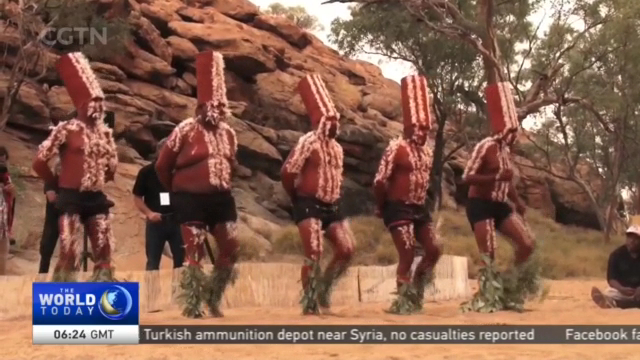
14:51, 09-Aug-2019
Linguistic Diversity: Race to preserve indigenous languages in Australia
Updated
15:13, 09-Aug-2019

Australia has lost an alarming number of its indigenous languages. Scholars estimate just a fraction remain - and many of those are considered endangered. That's why there is a sense of urgency to awaken and preserve what's left. Greg Navarro has more.
Inside what was once home to a church, a revival of sorts, Micklo Jarrett is using this weekly class to help revive Gumbaynggirr- an Indigenous language that was once commonly spoken across the region. Today, there are just a handful of fluent speakers left.
MICKLO JARRETT TEACHER "Only 8 people who are at the top of the list, only 8 people within 6,000 square kilometres of Kunbang homeland."
GREG NAVARRO NAMBUCCA HEADS "It's estimated that at the time the first British settlers set foot on Australia's shores, there were more than 300 languages being spoken by Indigenous people across the country."
Since then, many of Australia's Indigenous languages have been lost due, in large part, to government policies aimed at assimilating Aboriginal people into society. Those efforts, including being forced to speak English, continued into the middle of last century, when Jarrett was a young child.
MICKLO JARRETT TEACHER "Language was not allowed to be spoken to the children. If they were to be found teaching us we would have been punished or they would have been punished - their rations would have been stopped or they would have gotten flogged and put into jails."
Today it is estimated that only about 10% of Australia's Indigenous population speaks an Indigenous language at home.
JOE BLYTH SENIOR LECTURER, MACQUARIE UNIVERSITY "So many of the languages these days have but only a handful of speakers."
That's why Jarrett is teaching Gumbaynggirr, and people at the Muurrbay Aboriginal Language and Cultural Cooperative are working to preserve and awaken other Indigenous languages.
GARY WILLIAMS CEO, MUURRBAY ABORIGINAL LANGUAGE AND CULTURAL COOPERATIVE "It's linking them to their culture, it's linking them to their country and giving them a glimpse of what we had way back then."
At the University of Macquarie, senior lecturer Joe Blythe is part of a team that is not only documenting Indigenous languages, they're also recording how they are spoken.
JOE BLYTH SENIOR LECTURER, MACQUARIE UNIVERSITY "Because there are certain sorts of meanings that people have, that people make within an interaction that is not necessarily encoded at the level of works or at the level of grammar."
MICKLO JARRETT TEACHER "Gumbaynggirr people say that the language comes from the land, the land is there, so the language is there."
The key Jarrett says is to find ways to revive it and get people speaking it once again. Greg Navarro, CGTN, Nambucca Heads.
SITEMAP
Copyright © 2018 CGTN. Beijing ICP prepared NO.16065310-3
Copyright © 2018 CGTN. Beijing ICP prepared NO.16065310-3